Cellular circuits downstream from circadian pacemaker neurons direct normal daily rhythms of feeding, mating and sleep.
Daily activity schedules mapped in the Drosophila brain
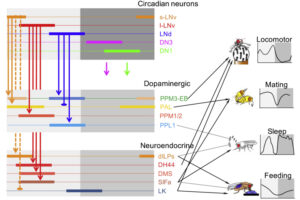

Cellular circuits downstream from circadian pacemaker neurons direct normal daily rhythms of feeding, mating and sleep.

Read Dr. Ashley Morhardt’s take on the paper in an article in Science.

Facility on track to achieve LEED Gold certification
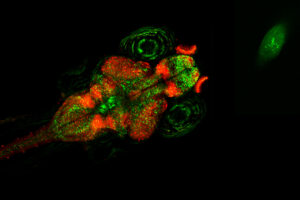
A new study from the Goodhill Lab finds the genetic variant underlying an autism disorder causes changes in fish’s social behavior, preference in visual environment, and neural activity.
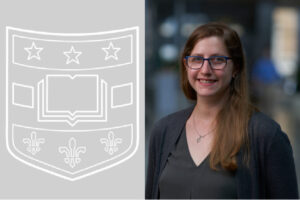
Read graduate student Katie Lefton’s article in Science Today about astrocytes, microglia, and satellite glial cells.
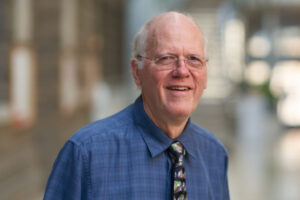
Matthew Glasser, a former graduate student of Van Essen and currently an Instructor in Radiology, also made the 2022 list.
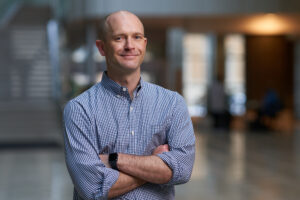
Dr. Gabel receives tenure for his pathbreaking research on epigenomic regulation of brain development and neurodevelopmental disorders, along with his devotion to mentoring and teaching.
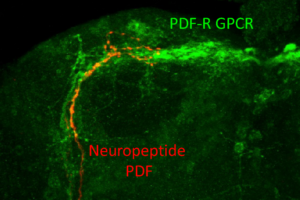
Phosphorylation of a receptor controls how messages from the neuropeptide PDF—which influence dawn and dusk activities in Drosophila—are curtailed on a daily basis to adapt the circadian clock to changing daylight.
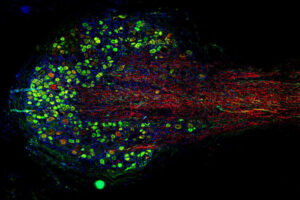
Valeria Cavalli, PhD, and Guoyan Zhao, PhD, are among the collaborators at WashU participating in the Integrated Research Center for Human Pain Tissues (INTERCEPT) Pain Center at the School of Medicine.
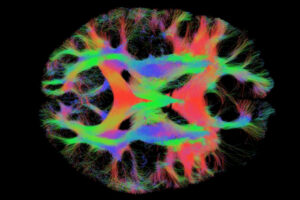
A study of individuals with congenital corpus callosum dysgenesis suggests they face social difficulties due to being more easily influenced and less aware of being tricked.